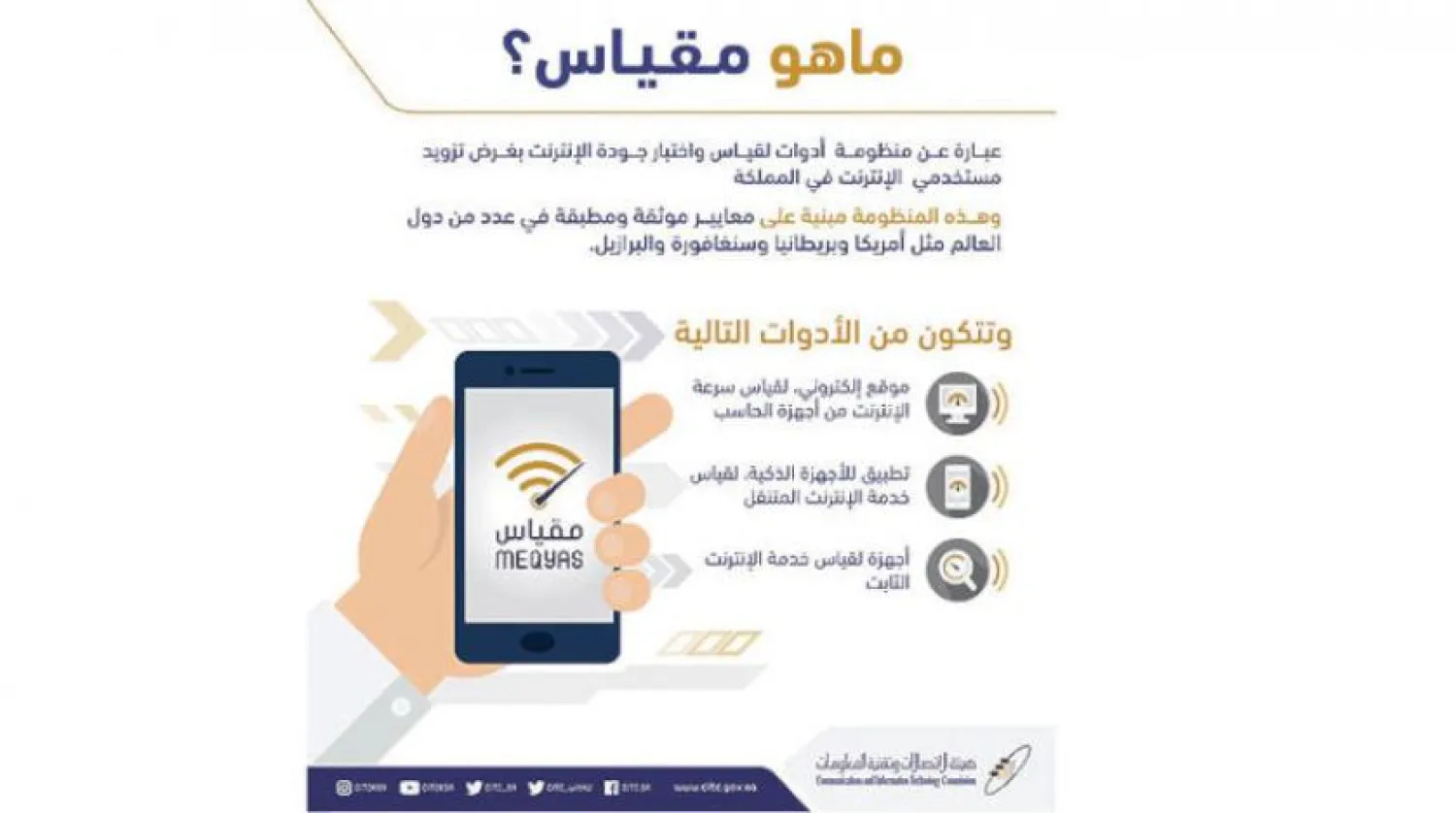In a move to increase the efficiency of Saudi internet services, the Saudi Communications and Information Technology Commission announced on Tuesday the launch of a measurement platform, ‘Meqyas.’
Meqyas is an initiative by The Communications and Information Technology Commission (CITC) to establish Internet Quality of Experience Measurement Platform in order to provide internet users in Saudi Arabia with reliable and accurate data concerning broadband and mobile internet services.
The Communications and Information Technology Commission (CITC) has partnered with SamKnows to implement and operate the measurement platform using world-class technologies and tools.
The CITC said that the aim of the initiative is to provide users with information pertaining to the quality of the Internet experience provided to them in a transparent manner, and to increase competition between service providers to improve quality.
These developments come at a time when Internet services in Saudi Arabia are the biggest driver of the telecom sector in the country. Local telecom operators are focusing on improving the quality of their services in this vital sector.
The CITC explained that the Internet measurement platform is influenced by several factors, such as the efficiency of the service provider's network tower, the distance from the supplying modem, the router's internal settings, and the number of users and devices tapping into the same point simultaneously.
It is noteworthy that ‘Meqyas’ is a different system of tools for users measure the quality of the internet provided them, and enables to follow the levels of quality at different time periods on a weekly basis, monthly, annually and according to international standards.
Meqyas aims to provide internet subscribers in Saudi Arabia with reliable and accurate data concerning broadband and mobile internet performance across the country.
More so, the CITC recently announced the number of mobile subscriptions in the country has reached 43.6 million, according to the latest statistics.
On the other hand, the communications commission had launched its electronic bulletin on monitoring the latest developments in the ICT sector in the Kingdom by the end of the second quarter of 2017.
The bulletin included the number of subscriptions to telecommunications services, which reached about 43.6 million-- 3.75 million lines represent the number of fixed line lines, while subscriptions to broadband services through mobile networks with a total definition amounted to about 25.2 million subscriptions.
The number of subscriptions to broadband services over fixed telecommunication networks reached 3.2 million, including DSL, fixed wireless connections, fiber optics and other wired lines.
As for the number of Internet users in the Kingdom, CITC said in its bulletin that the number of Internet users in the country reached 24 million users.
Saudi telecoms listed on the local capital market posted a remarkable growth in profits for the first half of 2017, with earnings growth of about 13 per cent compared to the first half of last year.









